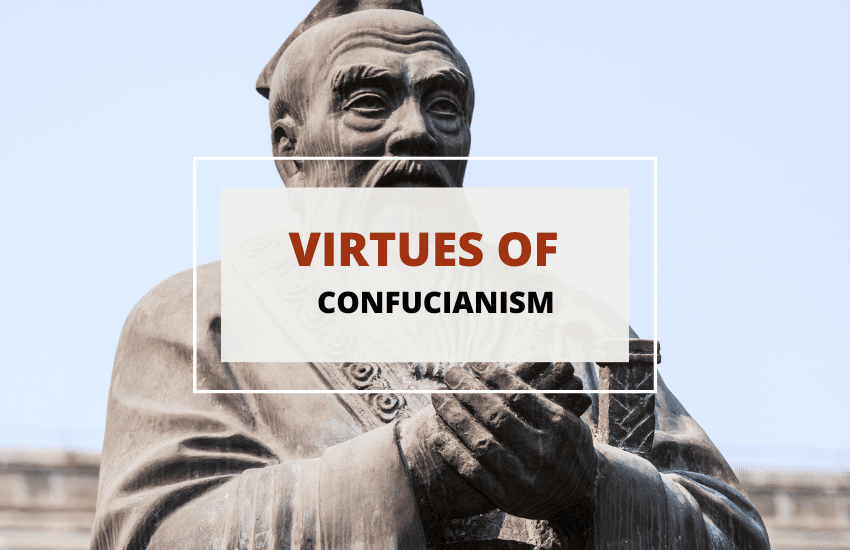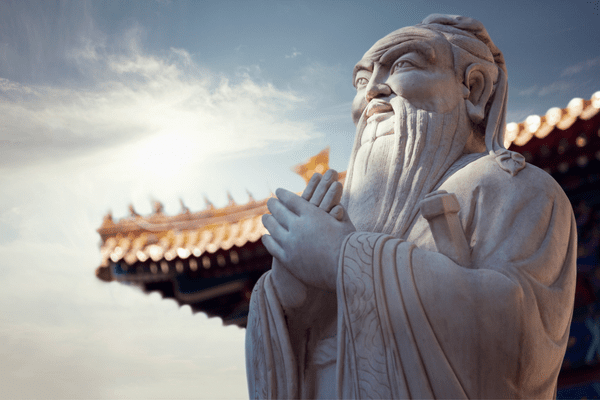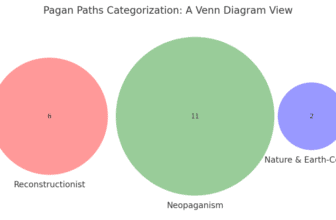
Table of Contents
The world as we know it has many different aspects. Humans have built societies, countries, and religions. All of this is a result of developing and evolving everything related to science and education. Aside from that, we have the need to be in groups.
Though there are religions that worship one or more deities, there are also philosophies people have created to guide others in their life journeys. These philosophies don’t tie themselves to a deity, but rather to a way of life.
That’s also the case with Confucianism, which is a philosophy. Confucius, who was a Chinese politician, philosopher, and also one of the wisest sages in East Asia, based his teachings on the way of life that he thought would help society become healthier.
This way of life was based on a moral and social code that Confucius developed for people to follow in order to reach a harmonic balance. Those who follow it learn that they are beings that depend on each other and that also have essential obligations.
Confucius rooted his philosophy in five integral virtues that every individual needs to nurture and develop. The five virtues are as follows.

Benevolence 仁 (REN)
Confucius had a definition of benevolence that goes along the lines of the fact that when you wish to be established yourself, you also have to seek a way to establish others. So, according to him, it’s the act of seeking an equal condition for others after you reach your goals.
When you act with benevolence every day of your life, benevolence becomes a part of you. Interestingly enough, according to Confucianism, you don’t only have to be benevolent toward others but also toward yourself.
This is because if you don’t treat yourself with kindness and compassion, you’re less likely to do it toward others. Our lives reflect what’s inside of us, in one way or another.
A way to apply benevolence in your daily life is to help and add good things to your peers’ life and environment. Helping your family or a friend out of love and not out of greed is one of the first steps. Do it because you want, not because you expect it to be a transaction.
Righteousness 義 (YI)

According to Confucius, when you have righteousness in your heart, your personality and character will help you develop harmony in all aspects of your life, which in turn allows society to be peaceful.
So, being a person that acts righteously implies that you must have an inherent moral need to act in a good and respectable way. Which also carries the aspect of having the ability to be sensible enough to do it through the right means.
There’s no room for acting rashly and hurting others in the name of the greater good. You need to be aware and understand the situations thoroughly before acting one way or another in virtue of the total good.
Along with this idea, when you apply it to your daily life, the way to do it is by trying to understand what a situation is about fully before acting or voicing your concerns or judgment. This way, you preserve your ability to help in a moral way, rather than rooting your actions in your emotions.
Trustworthiness 信 (XIN)
Confucius emphasized the importance of being a trustworthy person in his teachings. This is because according to him, being trustworthy will make other people give you responsibility. This helps in reaching harmony in society.
One of the reasons why it’s of utmost importance to have trustworthiness is because it not only creates a good reputation but also makes you respectable. So, it’s a virtue that’s superior to other abilities that might make you likable.
Though it might seem difficult, being trustworthy is tied to very simple aspects of life. Believe it or not, it only entails treating others with empathy, helping your community, and honoring your promises. So, applying it to your daily life isn’t difficult.
Another thing to keep in mind is that you have to also trust yourself and your ability to go through with the important things. That’s the only way other people will see that you act with integrity.
Propriety 禮 (LI)

Confucius directed his teachings about propriety toward the importance of being obedient, loyal, and respectful towards your family, especially your parents. Aside from that, it encouraged brotherliness, loyalty, and sincerity in all social aspects.
So, we could associate propriety with the quality of our interactions with other people. These interactions should be rooted in the standards that society has of moral behavior, so you can attribute them to your sense of propriety.
According to Confucianism, everyone should practice propriety. It doesn’t matter what somebody’s social status is, they still have to be respectful and kind to other people, just like others will definitely be to them.
One of the ways you can start applying propriety in your life is when you interact with your family and close friends. Once you’ve recognized its value, you’ll see yourself applying it in all aspects
Wisdom 智 (ZHI)

When it comes to wisdom, Confucius stated that knowing others helped to differentiate good from the bad. Knowledge is essential for wisdom, as well as experience.
We could say, then, that wisdom is having good judgment as a consequence of having experienced and gathering knowledge through it. So, when you make decisions, you apply wisdom to make the best one.
To be able to have wisdom, you have to be open to learning. Learning can be uncomfortable and painful, but once you start having the mentality of “what can I learn from this” everything will be easier.
Applying wisdom to your life entails embracing knowledge and that there’s always more to learn. Invest time in your education and in learning from people that align with your views. This way, you’ll be able to make sound decisions more often than not.
Wrapping Up
Confucianism is an incredibly beautiful philosophy and way of life. If you want to apply it, then nurture these five virtues as your contribution to your close ones, your life, and yourself. You can become part of the harmony that society so desperately needs.








